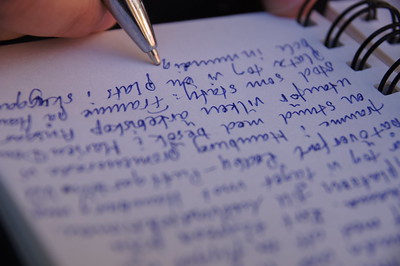|
Getting your Trinity Audio player ready...
|

As a writer, it is important to always make sure your writing communicates your message clearly. For this reason, reading aloud is essential to creating an effective piece of work, especially in poetry. Not only does reading aloud help with revising your mistakes, but it also helps with improving your speaking skills.
When we are young, we typically learn how to write and speak from our parents and teachers. As we get older, usually in high school years, our teachers show us new writing styles such as prose, argumentative, and informative writing. After a while, writing becomes repetitive and strenuous, something most students feel forced to do. It is at this point that most English teachers will give their students the most powerful piece of advice. The advice I am alluding to is to read your writings aloud.
Why Poetry is difficult to Read Aloud
Most times, students and even professional writers will forget to read their articles aloud to themselves. This results in the person missing errors. Now imagine missing errors in a written poem, where the language may be a bit more complicated because of the use of figurative language. Yikes, right? This is why it is important to read writings aloud, otherwise, you could risk staying up past midnight revising mistakes that might have only taken thirty minutes to fix if you corrected them earlier.

On the other hand, poetry can often be quite difficult to read aloud just as any other body of work would be. Even when writing your own poems, it can be incredibly difficult. Luckily, in a New York Public Library piece, writer Colleen Gibson discusses how and why reading poetry out loud is important. In Gibson’s article, she lists the steps provided by Former Poet Laureate Billy Collins. Step one is to read the poem slowly, step two is to read in a relaxed voice, step three is to take breaks in between sentences, and the final step is to use a dictionary for pronunciation and unfamiliar words.
What Are The Benefits of Reading Aloud?
The steps listed above seem simple, but their impacts can greatly improve persons writing and speaking skills. Firstly, using Collins methods to read poems aloud, even if one is not reciting their own poem, can make the experience feel more personal. In other words, rather than just reading the poem, you will feel the emotions that are embedded into the words. In addition to developing a personal connection with the poem, your sentences’ or stanzas will flow together better. Altogether, Collins’ steps will help poets, and even public speakers feel connected to their bodies of work. Rather than simply reciting a piece of writing, you will feel as you have brought the piece of literature to life.
Additionally, Professor Peter Elbow at the University of Massachusetts-Amherst discusses how reading aloud helped him discover his voice in his paper, “Revising by Reading Aloud. What The Mouth and Ear Know”. As previously mentioned, sometimes you can not hear your own errors until you read them out loud in front of other people or even back to yourself. Elbow details his experience about growing his self-confidence and developing better writing skills through performing in front of other people. He mentions that because he grew up in a multiracial family, it was often hard for him to speak and write in proper English. However, with the help of his supportive mother, he participated in multiple activities and clubs that taught him how to properly read and write.
Triumph In Writing
Not only does Professor Elbow’s story prove that reading aloud is an important skill, but it also demonstrates that anyone can improve their writing and reading skills if they try hard enough. Lastly, reading aloud will help writers correct run-on sentences’, spelling errors, and as proven by Elbow develop self-confidence. If this does not entice you to read aloud more often, hopefully, the thought of making your writings come alive will.
Opinion by Reginae Echols
Edited by Sheena Robertson
Sources:
New York Public Library: Inside Poetry Series: How Should I Read Poems Out Loud?; by Colleen Gibson
Guardian Liberty Voice: Reading Aloud Gives Written Words Power; by Jhayla D. Tyson
Peter Elbow: Revising by Reading Aloud. What the Mouth and Ear Know
Top and Featured Image courtesy of Esparta Palma’s Flickr Page – Creative Commons
Inline Image courtesy of Fredrik Rubensson’s Flickr Page – Creative Commons



